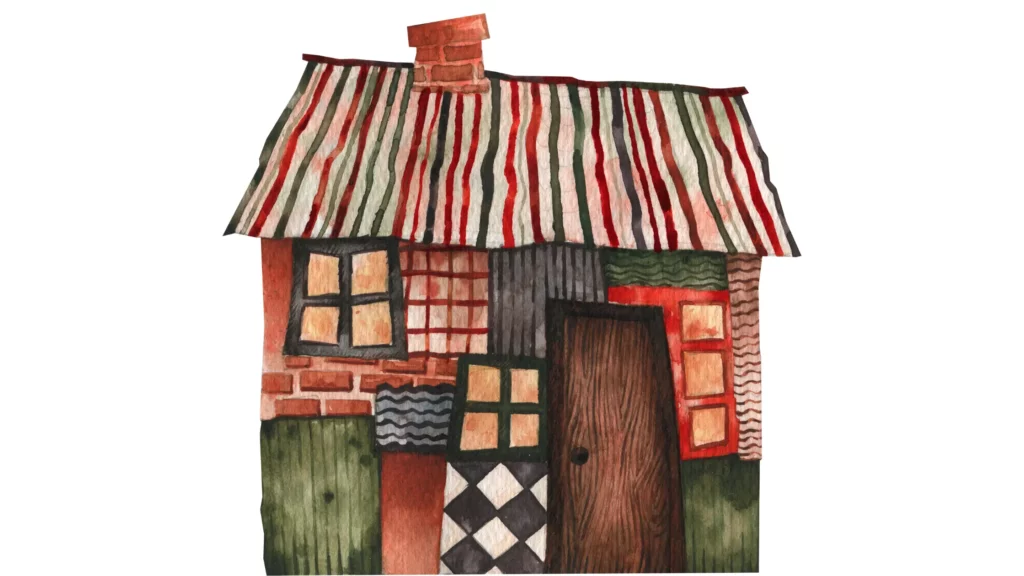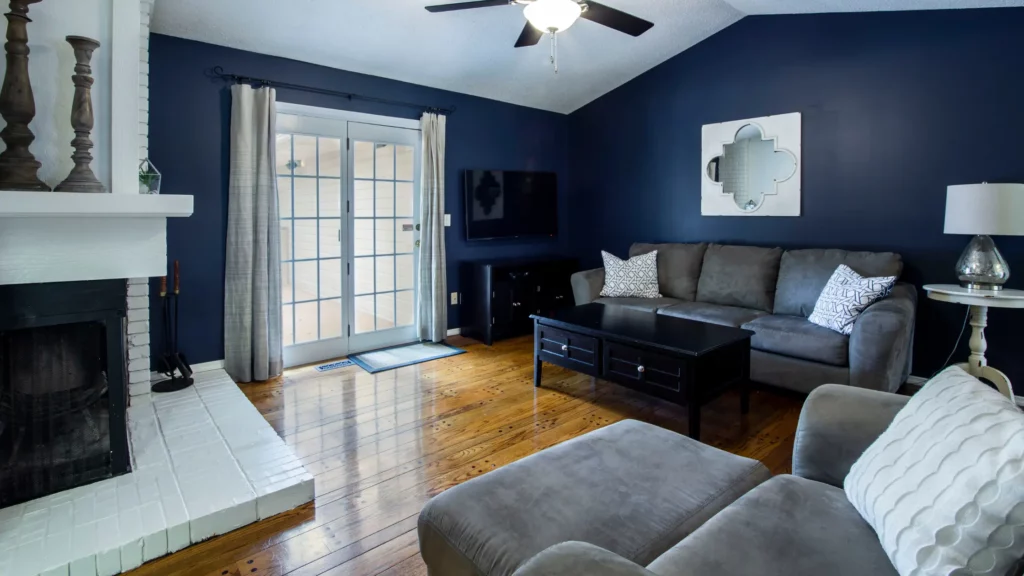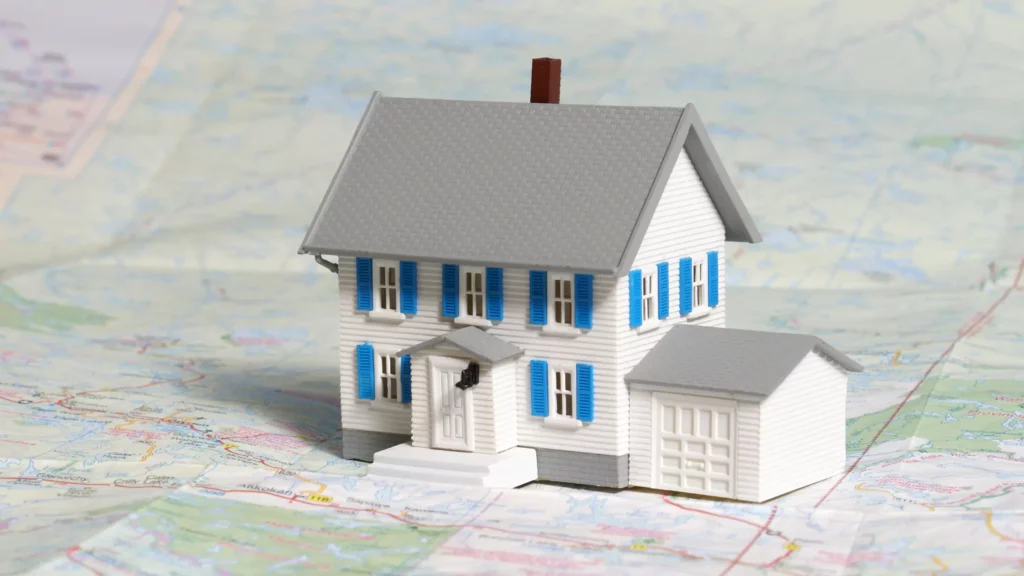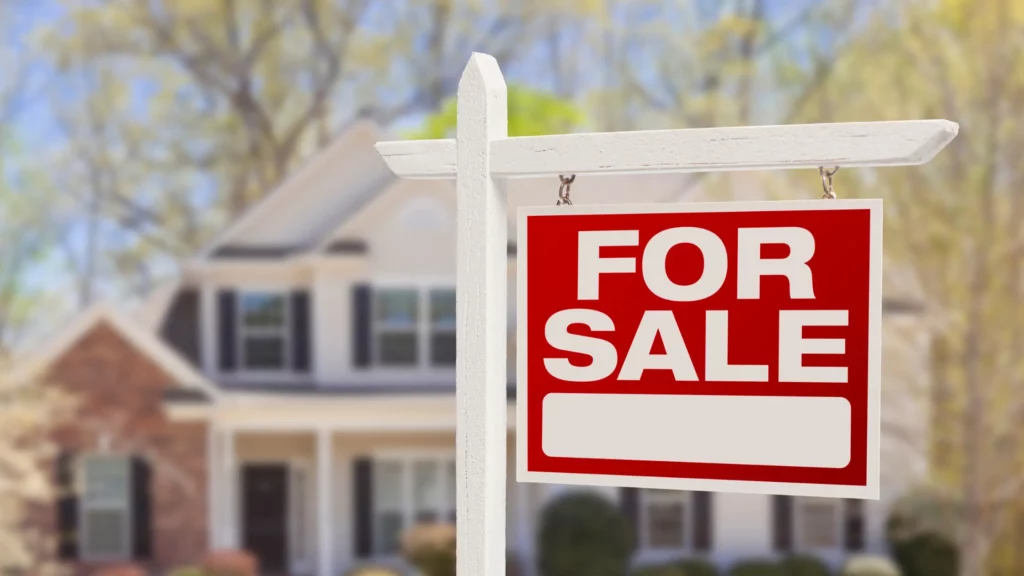Why Is My House Not Selling?
If you’re a homeowner trying to sell your house, it can be an overwhelming and stressful process – especially if you’re dealing with a long period of time on the market without any offers coming in. Many people wonder what could be going wrong when their home isn’t sold after months of listing; why isn’t anyone interested? Understanding the reasons behind your stalled sale is essential for getting back on track again, so let’s take a look at some common factors that can affect the success of selling your home.
The Price is Too High

Often, a significant factor that prevents a house from selling is an inflated asking price. Pricing a property correctly is a delicate balance and plays a pivotal role in attracting potential buyers. When the price tag is too steep, it can deter buyers, causing them to think that the property is beyond their reach or not equivalent to the value being asked.
Prospective buyers and real estate agents are typically scanning through numerous properties simultaneously and are well-versed with the ongoing market trends. They are likely to have a sound knowledge of what constitutes a reasonable price for a property like yours, considering its location, size, and overall condition. If your house appears overpriced in comparison, they may quickly move on to more affordable alternatives.
To avoid such pitfalls, it’s crucial to price your property competitively. It may be beneficial to seek a real estate agent with in-depth knowledge of your local housing market. They can assist in setting a realistic price that appeals to buyers while ensuring you don’t compromise on your potential profit. Ultimately, the aim is not only to sell but to secure an optimal price within a suitable timeframe.
Poor Marketing

Inadequate marketing can often be a significant obstacle to selling your house. In the modern world, where digital platforms dominate, simply relying on traditional methods like placing a “For Sale” sign or an ad in the newspaper might not suffice. Effective marketing strategies are essential to attract a broad spectrum of potential buyers and make your property stand out among numerous others.
Consider the quality of your listing first. Are your photos professionally taken, showcasing your home in the best light? Do they emphasize your home’s unique and appealing features? Is the description provided detailed and engaging enough to pique interest? The first impression made by your listing could significantly influence a buyer’s decision, so it’s vital to ensure it’s a positive one.
Online presence plays a critical role in marketing your property. As a large number of buyers commence their property search online, having your listing on widely used real estate platforms can greatly enhance its visibility. Be sure to optimize your online listing with pertinent keywords, top-notch images, and captivating descriptions.
However, don’t dismiss the effectiveness of traditional marketing strategies altogether. Word-of-mouth referrals, hosting open houses, and local advertising can still prove beneficial in attracting potential buyers. The idea is to employ a diverse array of marketing techniques to reach out to as many prospective home buyers as possible.
Bear in mind that even an impeccably maintained house priced just right can remain unsold if people are unaware of its availability. A strong marketing plan ensures your property gains the attention it warrants, thereby raising the likelihood of a successful sale.
You Hired a Weak Real Estate Agent

The real estate agent you choose to work with can significantly impact the sale of your house. A weak real estate agent might lack the necessary skills, experience, or motivation to sell your property effectively. This could lead to your house sitting on the market longer than necessary, or even worse, not selling at all.
A weak agent may not have a comprehensive understanding of the current market trends, which is crucial for setting a competitive price for your property. They may also lack the negotiation skills required to secure a good deal, potentially leaving money on the table that should rightfully be yours.
Good communication is also a key aspect of a successful realtor-client relationship. If your agent isn’t keeping you informed about the progress of your sale or responding promptly to your queries, it could indicate a lack of commitment or professionalism.
Therefore, choosing the right real estate agent is crucial. Look for someone with a proven track record in your local market, excellent communication skills, and a robust marketing strategy. Remember, the right agent will not just list your house but actively work to sell it at the best possible price.
Your Home Needs Repairs

One factor that could be preventing your house from selling is the need for repairs. Prospective buyers are usually looking for a home that is move-in ready. If your property has noticeable damage or requires significant maintenance, it could deter potential buyers or lower the value of your offers.
First impressions matter when selling a house. If buyers see broken fixtures, peeling paint, or a neglected garden as soon as they walk in, it could instantly put them off. Even minor issues like leaking faucets or squeaky doors could create an impression of a poorly maintained property.
Moreover, serious concerns such as plumbing issues, electrical faults, or a leaky roof can not only scare off buyers but also complicate the selling process. Most buyers will request a home inspection before finalizing the purchase. If the inspection uncovers major problems, it could lead to delayed closing dates, renegotiations, or even buyers pulling out of the deal.
Remember, buyers are likely to feel more comfortable purchasing a home that appears well-cared for. Making necessary repairs shows that you’ve maintained the property and can provide the buyer with peace of mind.
It’s Too Unique

While having a unique property can sometimes be a selling point, it can also be a hindrance if your house is too unconventional. Buyers usually look for a certain level of familiarity and comfort in their potential new home. If your house is exceptionally distinctive or quirky, it might struggle to appeal to a broad range of buyers.
Suppose your home has an unusual layout, overly bold interior design choices, or features that are highly specific to your personal tastes or hobbies. In that case, potential buyers might find it hard to envision themselves living there. They may also be put off by the prospect of having to invest additional time and money to make the space more suitable for their needs.
To increase your chances of selling, consider making some adjustments to make your property more appealing to a wider audience interested buyers. This doesn’t mean you have to completely strip your home of its character, but rather tone down any elements that might be seen as excessively eccentric or personalized.
Remember, the goal is to strike a balance between uniqueness and marketability. Highlighting the aspects that make your home special, while ensuring it still feels welcoming and adaptable, can help attract more potential buyers and speed up the selling process.
You Aren’t Being Flexible With Showings

One factor that could be hindering your home sale is a lack of flexibility with showings. When selling a property, it’s important to accommodate potential buyers’ schedules as much as possible. If you’re restricting showings to narrow timeframes or turning down requests because they’re inconvenient, you could be missing out on potential buyers.
Buyers often have varying schedules and may request showings during evenings, weekends, or even at short notice. If your house is not available for viewing at these times, they might move on to other properties that are. Remember, the easier you make it for people to see your property, the more likely you are to attract a large pool of potential buyers.
Moreover, during a showing, buyers prefer to explore the property at their own pace without feeling rushed or watched. If you insist on being present during showings, it could make potential buyers uncomfortable and less likely to spend time considering your property.
To facilitate more showings, consider using a lockbox or allowing your real estate agent to conduct showings when you’re not around. Also, try to keep your home in show-ready condition as much as possible, so you’re always prepared for last-minute viewings.
Your Home Isn’t Staged Well

The way your home is staged can significantly impact its appeal to potential buyers. If your home isn’t staged well, it might not highlight its best features or present a welcoming atmosphere, which could be deterring buyers.
Staging goes beyond just cleaning and decluttering. It involves strategically arranging furniture and decor to showcase the home’s strengths and downplay any weaknesses. A poorly staged home might make rooms look smaller or less functional, fail to highlight unique features, or not use lighting effectively to create a warm, inviting ambiance.
Additionally, overly personalized decor might make it difficult for potential buyers to envision themselves living in the space. While your collection of vintage movie posters or boldly painted walls might suit your taste, they could be off-putting to others. The goal of staging is to create a neutral yet appealing space that any buyer could see as their potential home.
Professional home staging can be a valuable investment when selling your home. A professional stager can objectively assess your space and arrange it in a way that appeals to a wide range of buyers. They can also help you address any problem areas that you might overlook.
However, even if you choose to stage your home yourself, remember the key principles: declutter, depersonalize, and highlight your home’s best features. A well-staged home can not only attract more buyers but also potentially increase the final sale price.
It Smells Bad

Believe it or not, the way your home smells can have a significant impact on its saleability. Unpleasant odors can be a major turn-off for potential buyers, creating an immediate negative impression that’s hard to shake off, no matter how beautiful your property may be.
Common culprits for bad smells include pet odors, cigarette smoke, dampness, or even strong food smells. These odors can permeate carpets, furniture, and walls, making them difficult to eliminate. If potential buyers are greeted by these smells during a viewing, they might question the cleanliness and overall maintenance of the property.
Furthermore, bad smells can also signal larger issues. For instance, a musty odor could suggest a mold problem, while a persistent sewage smell could indicate plumbing issues. Such concerns could deter buyers or lead to lower offers.
To address this issue, start by identifying and eliminating the source of the odor. This might involve deep-cleaning carpets and upholstery, airing out rooms, or even repainting walls. In case of persistent odors, consider hiring a professional cleaning service.
Once you’ve tackled the source of the smell, you can enhance your home’s ambiance with subtle, pleasant scents. However, avoid using overly strong or artificial fragrances as these can be just as off-putting to some people. Opt instead for mild, natural scents, such as those from essential oils or freshly baked cookies.
Remember, when selling your home, you’re selling an experience, not just bricks and mortar. Ensuring your home smells fresh and inviting can significantly boost its appeal to potential buyers.
Your Home Isn’t in a Desirable Location

Location is one of the most critical factors that potential buyers consider when purchasing a home. If your property isn’t in a desirable location, it could be a significant reason why it’s not selling.
Maybe your home is situated in an area with high crime rates, poor school districts, or limited amenities. Perhaps it’s next to a busy highway, industrial area, or other sources of noise and pollution. These factors can significantly decrease your property’s appeal, as they impact the quality of life for the occupants.
While you can’t change your home’s location, there are ways to mitigate its impact. Highlight any positive aspects of the area, such as proximity to parks, unique local shops, or community events. If possible, address any misconceptions or fears buyers might have about the location.
Pricing your property accurately is also crucial. If your home is in a less desirable location, it’s unrealistic to price it similarly to homes in prime locations. A real estate agent can help you determine a fair asking price considering all factors, including location.
It’s Been Listed for More Than 120 Days

If your property has been listed for more than 120 days without a sale, it might be considered a stale listing. In a typical real estate market, a well-priced home in good condition should sell within a few weeks to a couple of months. When a home lingers on the market for an extended period, potential buyers may start to wonder if there’s something wrong with it.
Longer listing periods can also lead to lower offers. Buyers might assume that you’re desperate to sell and will therefore be willing to accept a price below the asking rate. Additionally, as more time passes, you’ll likely have fewer showings, further decreasing your chances of securing a good offer.
There could be various reasons why your home isn’t selling. It might be overpriced, need repairs, be poorly staged, or not marketed effectively. It’s crucial to identify and address these issues to improve your chances of your home selling well.
Consider getting feedback from previous viewers or your real estate agent. They can provide valuable insights into why your home might not be appealing to buyers. If pricing is the issue, you might need to consider a price reduction. If the property needs work, making necessary improvements could make it more attractive.
Remember, while having your home on the market for more than 120 days can be frustrating, it’s not a dead end. With the right strategies and adjustments, you can revive interest in your property and get it sold.
You’re Not Willing to Negotiate

In the real estate market, negotiation is a common and expected part of the process. If you’re unwilling to negotiate on the price or terms of the sale, it could be a significant reason why your home isn’t selling.
Buyers often expect to negotiate down from the listing price, and they might be put off if there’s no room for discussion. Even if your property is priced correctly, outright refusal to negotiate can give the impression of inflexibility and discourage potential buyers.
Negotiation isn’t just about the price. It can also involve other terms of the sale, such as closing dates, contingencies, or items to be included in the sale. For instance, a buyer might request that certain repairs be made before closing or ask to include appliances or furniture in the sale.
Being open to negotiation doesn’t mean you have to accept offers that are significantly below your asking price or agree to unreasonable demands. However, showing some flexibility can help facilitate a deal. Be prepared to make some concessions and consider what terms you’re willing to negotiate before entering discussions.
A skilled real estate agent can guide you through the negotiation process, helping you understand when it’s worth standing firm and when a little flexibility could result in a successful sale. Remember, the goal is to reach a deal that’s acceptable to both parties and, in most cases, this involves some level of negotiation.
It’s Not Move-In Ready

In today’s fast-paced real estate market, many buyers are looking for homes that are move-in ready. If your property requires significant repairs or updates, it could be a substantial deterrent to potential buyers.
A house that isn’t move-in ready can present several challenges for buyers. They might not have the time, skills, or extra funds to invest in necessary renovations or repairs. Additionally, the prospect of dealing with contractors and living in a construction zone can be daunting. As a result, buyers may prefer to pay a bit more for a home that’s already in good condition rather than deal with the hassle and uncertainty of fixing up a property.
Common issues that can make a home less appealing include outdated kitchens or bathrooms, old appliances, worn-out carpeting, or any structural issues like a leaky roof or faulty wiring. Even minor issues like peeling paint or an unkempt yard can give the impression that the house hasn’t been well-maintained.
To make your home more appealing, consider making some key updates before listing it. Focus on areas that buyers care about most, like the kitchen and bathrooms. Ensure all necessary repairs are done, and keep the home clean and well-maintained.
However, if you’re unable or unwilling to make these updates, you’ll likely need to lower your asking price to reflect the work that needs to be done. A real estate agent can help you determine an appropriate price considering the condition of the home.
Remember, a move-in ready home is more attractive to a wider pool of buyers, increasing your chances of a quicker, more profitable sale.
As we have just discussed, there are several reasons why your home may not be selling. Whether it’s the price being too high, poor marketing, a weak real estate agent, needing repairs, not being flexible with showings, or having listed for 120+ days without any offers, there are many factors to consider when trying to sell your home. However, it does not mean that all is lost and you may never be able to find a buyer. With the help of a good real estate team that knows how to guide you through the process and properly market your home in this competitive market, you may still be able to get top dollar for your listing.
So if you are ready to tackle the sale of your home but need some extra assistance along the way, don’t hesitate to contact our team today! We will make sure that you get the most out of your sale and can help take some stress off of your shoulders as well. Let us provide you with a personalized plan and make your dreams come true.
